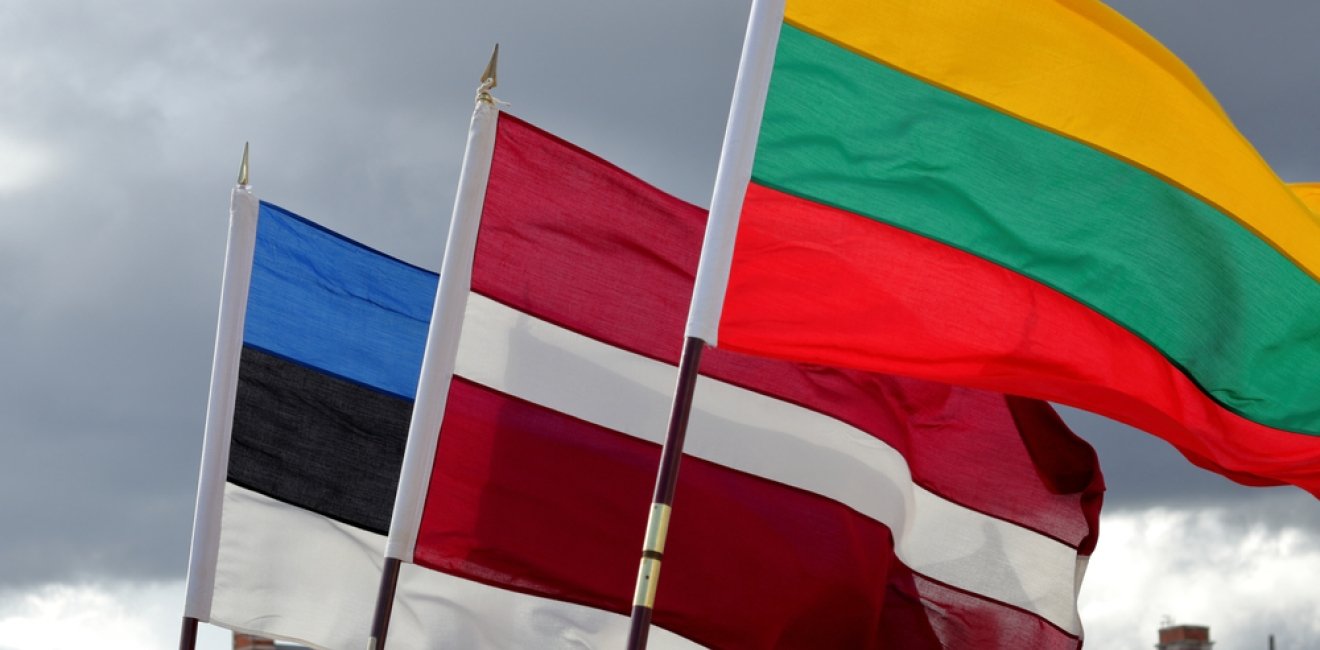The Baltic states–Estonia, Latvia, and Lithuania–have warned of potential Russian aggression for decades. When Russia invaded Ukraine in February 2022, it showed that Western Europe should have heeded the foresight of their Baltic neighbors. The Baltic states have stepped up considerably in support of Ukraine and are some of the country’s most ardent supporters. As support for Ukraine in the EU and United States stalls due to internal disagreements and divisions, the Baltics remain among the top contributors of military and financial aid to Ukraine relative to their respective GDPs. Moreover, the Baltics have welcomed a tremendous number of Ukrainian refugees relative to their populations, have exhibited exceptional thought leadership, and are a paragon of resolve and determination at a time when the rest of the West’s support for Ukraine has gone wobbly.
Early January’s surprise visit by Zelensky to all three Baltic countries underscored their importance to Ukraine’s continued survival. They seized the opportunity to offer new aid packages directly to the beleaguered Ukrainian leader. Estonia and Lithuania have contributed 1.8% of their GDP each in aid to Ukraine, with Latvia not far behind with 1.5% of its GDP, between bilateral contributions and via the EU. The Baltic states are three out of the top five contributors of aid as a percentage of their GDP. Importantly, they are taking steps to institutionalize and regularize long-term aid for Ukraine, with Lithuania announcing it will spend 0.4% of its GDP in 2024 on military support and pledging a new package of military support for Ukraine worth €200 million – part of its plan for long term support through 2026. Latvia has provided Ukraine with military equipment worth about €370 million, more than 1% of its GDP. All three countries understood implicitly that investing in Ukraine’s is an investment in their own defense.
In terms of Ukrainian refugees, the Baltic states have taken on more than most countries in Europe, save Poland. Estonia has hosted approximately 40,000 Ukrainian refugees (about 3% of its population), Latvia has between 50,000-53,000 Ukrainians (about 2.7% of its total population), and Lithuania has issued more than 50,000 visas for temporary protection and claims more than 80,000 have arrived (2.8% of its population). If the United States accepted a similar number of Ukrainian refugees relative to its population, that number would exceed one million Ukrainians, comprising the entire annual immigration allowance for the United States. Each of the Baltic states have invested heavily into educational and language programs for Ukrainian refugees, with Latvia providing €4 million for Latvian language training. In August 2022, “the Freedom School” was established in Tallinn to provide Ukrainian culture and language education for 570 displaced Ukrainians and to provide employment opportunities for displaced instructors (approximately one third of the teachers are Ukrainian refugees).
Beyond military and humanitarian support, all three Baltic states offer considerable political leadership and thought leadership on both fighting and ending the conflict. All three countries are ardent supporters of welcoming Ukraine to NATO and the EU. Latvia is leading the discussion on the creation of a drone coalition to support Ukraine. Estonia’s Ministry of Defense recently issued an updated discussion paper setting out Ukraine’s path to victory. In the paper, they propose 2024 should be a year for strategic build up for Ukraine with an eye to end the war in three years. They propose “adjusting and increasing the Euro-Atlantic community’s military production output and assistance to Ukraine, and imposing the perspective of an intolerable level of attrition on Russia.” Furthermore, the recently announced Tallinn Mechanism is an international consortium with the goal of improving the cyber support of donors to Ukraine in the civilian domain. This mechanism, proposed by Estonia, includes Canada, Denmark, France, Germany, Netherlands, Poland, Sweden, Ukraine, the United Kingdom and the United States. It will offer a more coherent and systemized approach to future support for Ukraine, while lending some of Estonia’s stellar cyber defense capabilities to protect Ukraine from future cyber attacks. Estonia is putting its digital know-how to work on behalf of Ukraine. Besides military support, Lithuania was one of the first countries to start working on the reconstruction of Ukraine. Through its Future of Ukraine initiative, Lithuania is already on the ground in Ukraine, restoring kindergartens, schools, and energy infrastructure. While discussions on finding a legal mechanism for directing frozen Russian assets towards aid for Ukraine are ongoing, Lithuania has taken action by redirecting fines collected from sanctions violations towards the reconstruction of Ukraine for the next 10 years.
As support for Ukraine wavers in Brussels and Washington, the Baltic countries shine as a source of continued support for Ukraine and its people. All three countries punch far above their weight in military and humanitarian support. In addition, they offer their unique perspective dealing with Russia on their border, a perspective that has often been overlooked in Western Europe in the past. The Baltic States are offering profound political and thought leadership at a time when serious introspection as to the end stages of the war is necessary. One lesson is clear: be like the Baltics when it comes to supporting Ukraine.
Authors



Global Europe Program
The Global Europe Program is focused on Europe’s capabilities, and how it engages on critical global issues. We investigate European approaches to critical global issues. We examine Europe’s relations with Russia and Eurasia, China and the Indo-Pacific, the Middle East and Africa. Our initiatives include “Ukraine in Europe”—an examination of what it will take to make Ukraine’s European future a reality. But we also examine the role of NATO, the European Union and the OSCE, Europe’s energy security, transatlantic trade disputes, and challenges to democracy. The Global Europe Program’s staff, scholars-in-residence, and Global Fellows participate in seminars, policy study groups, and international conferences to provide analytical recommendations to policy makers and the media. Read more

Explore More
Browse Insights & Analysis
The OSCE is a Good Value for America



